T. E. Lawrence - 27 Articles: T. E. Lawrence
Here you can read online T. E. Lawrence - 27 Articles: T. E. Lawrence full text of the book (entire story) in english for free. Download pdf and epub, get meaning, cover and reviews about this ebook. year: 2021, publisher: Simon & Schuster, genre: Romance novel. Description of the work, (preface) as well as reviews are available. Best literature library LitArk.com created for fans of good reading and offers a wide selection of genres:
Romance novel
Science fiction
Adventure
Detective
Science
History
Home and family
Prose
Art
Politics
Computer
Non-fiction
Religion
Business
Children
Humor
Choose a favorite category and find really read worthwhile books. Enjoy immersion in the world of imagination, feel the emotions of the characters or learn something new for yourself, make an fascinating discovery.

- Book:27 Articles: T. E. Lawrence
- Author:
- Publisher:Simon & Schuster
- Genre:
- Year:2021
- Rating:4 / 5
- Favourites:Add to favourites
- Your mark:
- 80
- 1
- 2
- 3
- 4
- 5
27 Articles: T. E. Lawrence: summary, description and annotation
We offer to read an annotation, description, summary or preface (depends on what the author of the book "27 Articles: T. E. Lawrence" wrote himself). If you haven't found the necessary information about the book — write in the comments, we will try to find it.
27 Articles: T. E. Lawrence — read online for free the complete book (whole text) full work
Below is the text of the book, divided by pages. System saving the place of the last page read, allows you to conveniently read the book "27 Articles: T. E. Lawrence" online for free, without having to search again every time where you left off. Put a bookmark, and you can go to the page where you finished reading at any time.
Font size:
Interval:
Bookmark:
Thank you for downloading this Simon & Schuster ebook.
Get a FREE ebook when you join our mailing list. Plus, get updates on new releases, deals, recommended reads, and more from Simon & Schuster. Click below to sign up and see terms and conditions.
CLICK HERE TO SIGN UP
Already a subscriber? Provide your email again so we can register this ebook and send you more of what you like to read. You will continue to receive exclusive offers in your inbox.
We hope you enjoyed reading this Simon & Schuster ebook.
Get a FREE ebook when you join our mailing list. Plus, get updates on new releases, deals, recommended reads, and more from Simon & Schuster. Click below to sign up and see terms and conditions.
CLICK HERE TO SIGN UP
Already a subscriber? Provide your email again so we can register this ebook and send you more of what you like to read. You will continue to receive exclusive offers in your inbox.

Simon & Schuster
1230 Avenue of the Americas
New York, NY 10020
www.SimonandSchuster.com
Introduction copyright 2017 by Dr. John C. Hulsman
Afterword copyright 2017 by David Rhodes
27 Articles was originally published in 1917
All rights reserved, including the right to reproduce this book or portions thereof in any form whatsoever. For information address Simon & Schuster Subsidiary Rights Department, 1230 Avenue of the Americas, New York, NY 10020.
First Simon & Schuster hardcover edition August 2017
SIMON & SCHUSTER and colophon are registered trademarks of Simon & Schuster, Inc.
For information about special discounts for bulk purchases, please contact Simon & Schuster Special Sales at 1-866-506-1949 or .
The Simon & Schuster Speakers Bureau can bring authors to your live event. For more information or to book an event contact the Simon & Schuster Speakers Bureau at 1-866-248-3049 or visit our website at www.simonspeakers.com.
Jacket Design by David Litman
Library of Congress Cataloging-in-Publication Data is available.
ISBN: 978-1-5011-8200-6
ISBN: 978-1-5011-8201-3 (ebook)
John Hulsman
April 2017
Just before the start of the Iraq War, I was asked by the Council on Foreign Relations to serve on a task force aimed at advising the Bush administration on how to run Iraq after the fall of Saddam. It was soon after 9/11, and the neoconservative program of imposing democracy at the point of a gun was in full swing. Our mission was to devise a general blueprint for creating a stable country from scratch, or, as we skeptics put it at the time, how to add water and get George Washington.
This experience is what led me to bump squarely into the work of Lawrence of Arabia. One of the points made incessantly by all the great and the good assembled for the Iraqi task force at the meeting was that, if nation building was to have a chance of success, inserting Western liberal democratic values into failed states like Iraq from outside sources was an absolute prerequisite. The discussion focused on just how fast we could make this happen, avoiding any mention of Iraqs unique history, politics, culture, ethnology, sociology, economic status, or religious orientation. What did these trifles matter compared with the Washington elites view of how the world really ought to work?
Eventually, despite knowing that it would only cost me, I rose to my feet and said my piece. Though I mangled the exact quotation, I was close enough: Do not try to do too much with your own hands. Better the Arabs do it tolerably than you do it perfectly. It is their war, and you are to help them, not to win it for them. To help themnot to dictate to them, manage them, bully them, ignore them, or lecture themto help them help themselves. The quote was from T. E. Lawrence, though at the time I could not remember where I had read it.
I was heard out in stony silence, and after the meeting I was advised by my political allies that I had better get with the program. Instead, as Lawrence would have done, I went off into the desert, looking for a better way.
I sought out the quotation I had hazily recalled at the meeting and found it in T. E. Lawrences 27 Articles , written in August 1917, a primer for British officers serving in the Arab Revolt in World War I on how to work effectively with local peoples. As I read the articles and learned more about the man, it dawned on me that all the failed or partially failed attempts at nation building in the postCold War erain Haiti, Somalia, Bosnia, Kosovo, Afghanistan, and Iraqwere intimately related. In every case they were based on the same analytically flawed worldview. Journeying into the intellectual desert, seeking out Lawrence of Arabia, turned out to be hugely rewarding.
For while conventional wisdom about nation building has proven depressingly (and predictably) wrong, there are answers out there: forgotten answers from another age, answers we are all in desperate need of rediscovering.
We must go back in time to the early twentieth century, exactly one hundred years ago, when an increasingly famous British subaltern was hastily scribbling some notes in the wastes of the Arabian Desert. For Lawrence was considering questions that go well beyond the particulars of fighting in World War I, or even how to do nation building: hes offering us nothing less than a wholly different worldview for how to work with others.
Despite being, next to his close friend Winston Churchill, the most famous Englishman of the twentieth century, T. E. Lawrence has remained an enigma. There have been more than thirty books on him, several plays, and one magnificent if inaccurate Oscar-winning movie, yet still Lawrence somehow evades us, as he wished to, remaining just out of reach.
Part of the problem is that in his short life Lawrence was a true Renaissance man. He was an archaeologist, war photographer, mapmaker, intelligence officer, guerrilla fighter, political leader, diplomat, movie star, public policy intellectual, writer, linguist, thinker, and mechanic. His many talents seem designed to overwhelm us from getting a sense of what in him was central, and what was interesting but peripheral.
Misleadingly, Lawrences incarnation as a war hero has tended to eclipse everything else. For most Americans, the basis of the Lawrence myth is the peerless David Lean film Lawrence of Arabia , which was released in 1962. Though playing fast and loose with the specific historical truth, Lean remained uncannily faithful to the spirit of Lawrences epic account of the desert war, Seven Pillars of Wisdom. Peter OTooles portrayal of the desert hero is widely considered to be one of the best acting performances in screen history. The beloved movie took home the Academy Award for Best Picture (and six other Oscars) and regularly shows up on top ten lists of the best movies ever made. It is the image most of us retain of Lawrence.
Yet this iconic picture obscures far more than it reveals. Though viewed today primarily as a warrior prince, Lawrence was in reality far more important as a thinker. Through his direct personal experience, Lawrence happened upon a strategy for nation building in particular and leadership in general that was revolutionary then and remains so nowan intellectual philosophy forged in the cauldron of World War I. It might well have saved the world and the Middle East a great deal of subsequent historical agony if his views had carried the day.
In the 27 Articles , written one hundred years ago as a practical guide for British officers serving with the Hashemite army in western Arabia and Syria, Lawrence quite brilliantly laid out a much wider philosophical basis for working with peoples on the cusp of nation building. While the articlesas is true of all historical documentsare a product of their time, containing an imperial ethos (and Lawrence was surely a fervent, if reformist, imperialist), more important, they put forward a forgotten philosophy that transcends the specific limits of their time and space. Lawrence ultimately respects the agency of local Arab stakeholders in a way that betters the vast majority of our modern efforts. This long-forgotten philosophy constitutes nothing less than an entirely workable blueprint for nation building in our own troubled era. Lawrences policy primer had made the Arabs stakeholders in the outcome of their war, the primary actors in their own story of regeneration and renewal.
Next pageFont size:
Interval:
Bookmark:
Similar books «27 Articles: T. E. Lawrence»
Look at similar books to 27 Articles: T. E. Lawrence. We have selected literature similar in name and meaning in the hope of providing readers with more options to find new, interesting, not yet read works.
Discussion, reviews of the book 27 Articles: T. E. Lawrence and just readers' own opinions. Leave your comments, write what you think about the work, its meaning or the main characters. Specify what exactly you liked and what you didn't like, and why you think so.

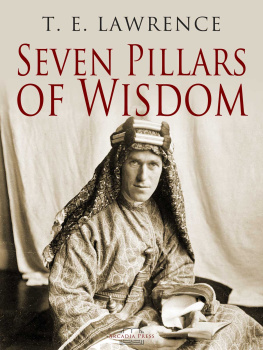
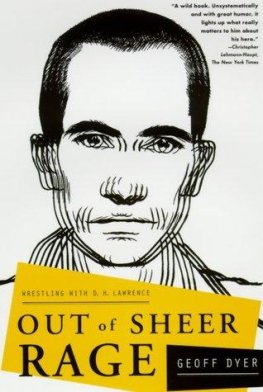
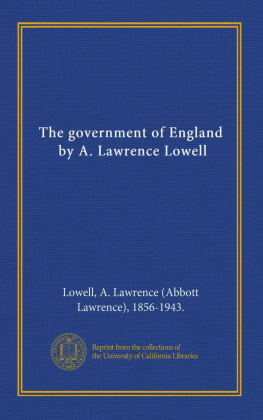
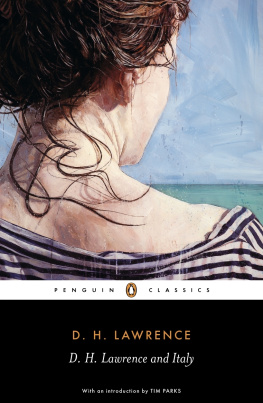
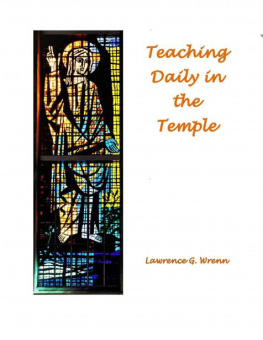
![Lawrence Durrell [Lawrence Durrell] - Caesar’s Vast Ghost](/uploads/posts/book/142113/thumbs/lawrence-durrell-lawrence-durrell-caesar-s.jpg)



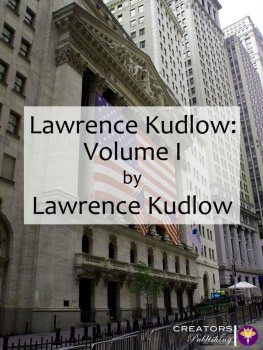
![D. H. Lawrence [Lawrence - Sons and Lovers [Annotated Version]](/uploads/posts/book/61295/thumbs/d-h-lawrence-lawrence-sons-and-lovers.jpg)